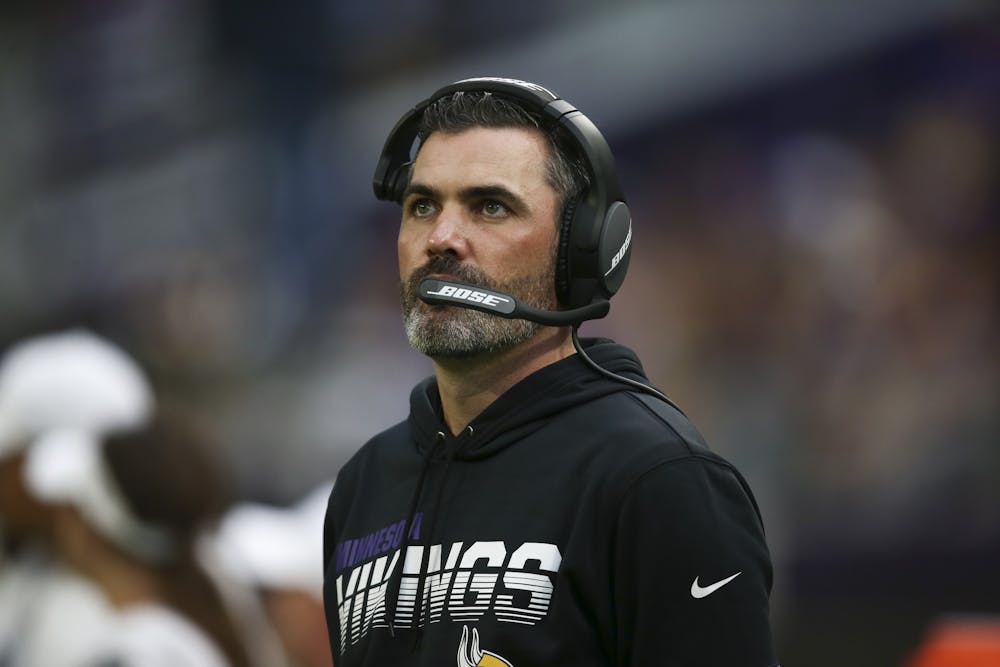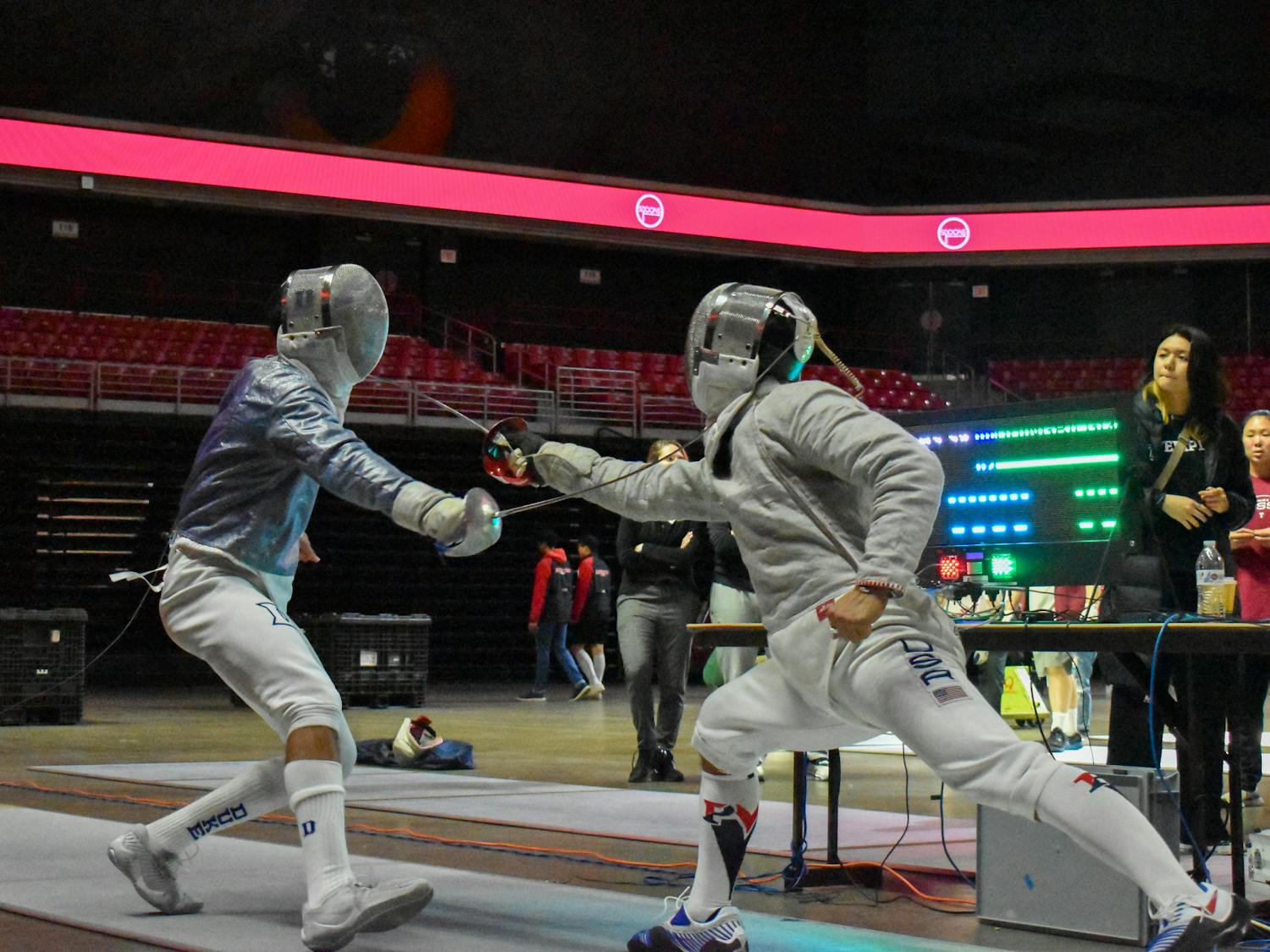As the NFL kicked off last Sunday, things looked different around the league. Tom Brady donned a Buccaneers jersey, Joe Burrow started his first professional game, and the NFL played games without fans for the first time in its history.
Flying a little under the radar in comparison was the professional head coaching debut of the Cleveland Browns' Kevin Stefanski, who graduated from Penn in 2004. Though the Browns didn’t have much success against the heavily favored defending AFC North champion Baltimore Ravens, adversity isn’t new to Stefanski.
Born into a sports family in the Philadelphia area, Stefanski was a standout athlete. His father, Ed, graduated from Penn in 1976 and was a letter-winner on the men's basketball team. Stefanski played basketball, baseball, and football throughout his youth before enrolling at St. Joseph’s Preparatory School for high school.
At St. Joseph’s Prep, Stefanski was named the starting quarterback of the freshmen football team, beating out current New York Giants coach Joe Judge. He wasn’t able to play quarterback once he moved up to varsity for his sophomore season, so he switched to safety. He quickly made his mark on the defensive side of the ball, gaining a reputation for being a hard-hitting safety who often played in the box like a linebacker.
During his senior year, Stefanski put it all together, playing quarterback and safety for the Hawks. He earned Catholic League MVP honors in a year where the League realigned to include larger schools.
Chris Rupertus, an English teacher and coach of the freshmen football team, often watched the varsity games from the sidelines, where he would see Stefanski get sacked frequently behind a poor Hawks offensive line. Rupertus would watch as Stefanski slowly got up and jogged over to the sideline, only to run right back onto the field to play safety after the team punted.
Al Bagnoli, who coached Penn football at the time, took note of Stefanski early on in his high school career, current Penn coach and then-defensive coordinator Ray Priore noted. Penn recruited Stefanski to play safety, valuing his high-level work ethic and high football IQ.
“We often look at guys from St. Joseph’s Prep because they do a really good job of developing great talent and attitude in their players,” Priore said. “That kid loves the game of football. But he was also one of the easiest players I’ve ever had to coach because he understood the game at such a deep level.”
RELATED:
15 questions with... Ryan Cragun, a Penn football junior wide receiver
Blame it on the juice: Penn football senior Brian O'Neill inspires with veteran leadership
Stefanski exceeded expectations in his first year for the Quakers. He was named Penn's Defensive Rookie of the Year for his efforts. On the season, he amassed 27 tackles and picked up an interception in the Red and Blue’s final conference matchup against Cornell.
Hopes were high for Stefanski's sophomore campaign. He opened the season as a starter at strong safety, but in the Quakers’ opener at Lafayette, Stefanski tore his anterior cruciate ligament and missed the rest of the year.
“[Stefanski] had a really tough injury in his second season — you really hate to see it happen to guys like him,” Priore said. “But he took that injury and said, 'Look, I can either walk away, or I can focus on recovery and come back next season.' And that’s just what he did.”
Stefanski returned to the field in 2002, where he suited up at safety against Lafayette in the Quakers’ first game. Coming off an injury, Priore didn’t intend to play him right out of the gate.
“[Stefanski] was telling us he was ready to go, but we had a lot of depth at the position and wanted to take things slowly at first,” Priore said. “But we had some injuries in our secondary, and then he goes out there and has the best game of his college career.”
Stefanski tallied two interceptions and two passes defensed against the Leopards as the Quakers cruised to a 52-21 victory. His season-opening performance proved to be telling of things to come: Stefanski earned honorable mention All-Ivy honors at the end of the season.
In his senior season, Stefanski ran into more injury woes. A few weeks before Penn’s season-opener against Duquesne, he suffered cartilage damage in his right knee in a routine practice and missed most of the season. Despite not being able to take the field for a long period, Stefanski was a vocal locker room presence.
“After he had surgery on his knee, I think [Stefanski] really settled in as a leader on this team,” Priore said. “He's a very smart player who could explain any play on a drawing board. But he was also extremely mature for his age, and he had some great words of advice for some of the younger guys on the team.”
Stefanski returned for an extra semester in 2004 to finish up his Communications degree in the College of Arts and Sciences. He started every game for the Red and Blue at safety, helping the team finish second in the Ivy League standings and earning honorable mention All-Ivy honors for the second time.
He finished his Penn career with a 32-3 conference record, and he was awarded the program’s George A. Weiss award, which is presented annually to the player whose spirit and play personifies “Pennsylvania kind of football.”
“He was a guy in his early 20s who had the maturity of a 40-year old and could connect with anyone,” Priore said. “When he got hurt, he went out of his way to drive one of our older assistant coaches around campus in our football cart. And after he came back from injury, he still drove him around everywhere.”
Impressed by Stefanski’s work ethic, demeanor, and football IQ, Priore helped him get a job at Penn after graduation. Stefanski worked as assistant director of football operations, handling all aspects of the Quakers’ day-to-day operations. He was so successful in this role that the Philadelphia Eagles ended up offering him an entry-level position in their organization, and Stefanski has been in the NFL ever since.
After Cleveland's loss on Sunday, Stefanski answered reporters’ questions virtually. It was a frustrating start to the season for the Browns, who committed eight penalties and three turnovers. But if his Penn football career is any indication, Stefanski won’t be discouraged. Instead, he’ll go back to the drawing board.









